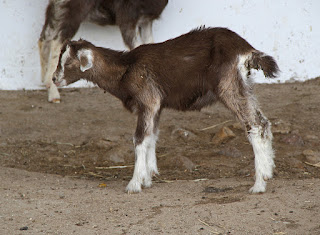Researchers at Texas A&M University compared the efficacy of two anti-coccidia drugs in goats. One hundred and fifty young goats, housed on concrete lots, were randomized to receive either amprolium (50 mg/kg once a day for 5 days by mouth) or ponazuril (10 mg/kg by mouth once) if they had fecal oocyst counts >5,000 per gram.
Both treatments resulted in decreased oocyst counts post-treatment compared to before treatment. There was no significant difference between fecal coccidia oocyst counts between goats in each group. There was no significant difference in body weight between goats in each group. This study showed that both amprolium and ponazuril were effective in decreasing fecal coccidia oocyst counts in this group of goats.
Use of both drugs is currently extra-label in the USA. Amprolium (Corid®) is labeled for treatment of coccidiosis in calves while ponazuril (Marquis®), a metabolite of toltrazuril, is labeled for treatment of equine protozoal myeloencephalitis.
Coccidiosis is an important disease of young goats (and lambs) leading to weight loss, diarrhea, and death. In the USA, both ionophores and decoquinate are labeled for prevention of coccidia in goats (and sheep). However, there are no drugs approved for treatment of clinical cases of coccidiosis in either species.
Source:
Veterinary Parasitology, March 2016


No comments:
Post a Comment